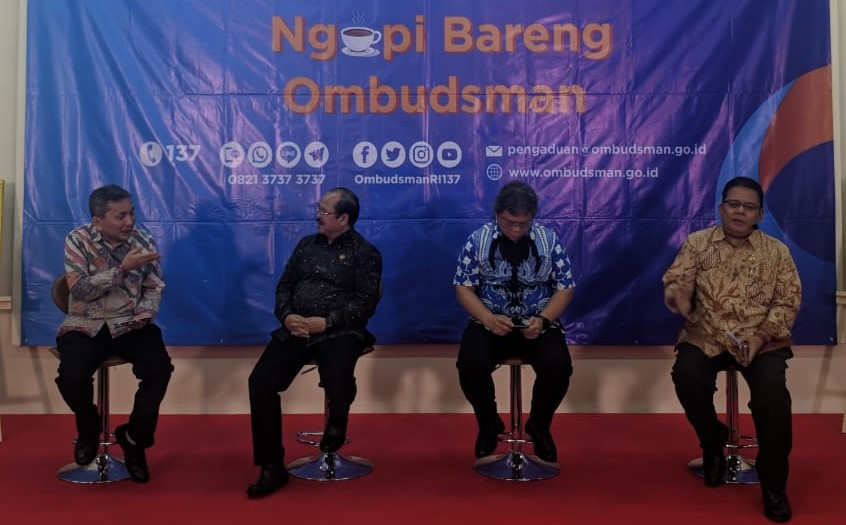Popular Reads
Top Results
Can't find what you're looking for?
View all search resultsPopular Reads
Top Results
Can't find what you're looking for?
View all search resultsOmbudsman to investigate OJK amid insurance scandals
The team will question the OJK about its standards for publishing financial reports, as the current one-page format is deemed unsatisfactory for supervising the financial performances of insurance companies.
Change text size
Gift Premium Articles
to Anyone
T
he Indonesian Ombudsman has formed a team to investigate the Financial Service Authority (OJK) amid growing complaints from the public against the financial watchdog’s poor supervision, following revelations of a financial fiasco involving insurance companies Jiwasraya, Asabri and Bumiputera.
“We hope that the OJK will be cooperative enough to tell us what is actually going on, so we can provide solutions that could solve the root of the problem,” ombudsman official Ahmad Alamsyah Saragih told reporters at a press conference on Wednesday.
The team will question the OJK about its standards for publishing financial reports, as the current one-page format is deemed unsatisfactory for supervising the financial performances of insurance companies. It will also question the authority about its regulations on corporate governance within the insurance industry, the criteria for investments, supervision on transactions on the stock exchange, consumer protection and the standards for dealing with consumer complaints.
The investigation will further examine the OJK’s decision to remove a mandatory fit and proper test from OJK Regulation (POJK) No. 2/2014 on the appointment of insurance company directors and commissioners. At present, they are only subject to OJK’s approval.
The OJK has also been flip-flopping on policy changes, particularly with regard to POJK No. 2/2014, which required insurance companies to have a compliance director. The rule was revised to give companies leeway and allowing them to take three years to appoint a compliance director. This was once again revised, going back to the original regulation that obliged insurance companies to have a compliance director with POJK No. 43/2019.
However, the ombudsman was of the opinion that the OJK had not enforced the regulations well enough as most insurance companies had yet to appoint a compliance director.
“We saw a symptom of increasingly inconsistent and weak regulations [from the OJK],” Ahmad said.
Of the 74 insurance-related complaints the ombudsman received last year, 19.2 percent — the second-highest number of complaints involving the industry — was about the OJK.
Some 34 percent concerned the Health Care and Social Security Agency (BPJS Kesehatan), 9.6 percent about the Workers Social Security Agency (BPJS Ketenagakerjaan), 8.2 percent about state insurer Bumiputera, 8.2 percent was related to civil servant insurer Taspen, 4.1 percent about social insurer Jasa Raharja, 2.7 percent about state insurer Jiwasraya, 2.7 percent regarding armed forces insurer Asabri and 11 percent about other insurance companies.
Other than the OJK, Ahmad said the ombudsman team would investigate other insurance-related issues, namely insurance companies’ corporate governance, the issuance of Government Regulation (PP) 102/2015, which prevented the OJK from supervising Asabri, and the protection of transaction data at the Indonesia Stock Exchange (IDX), which would also involve the Indonesian Central Securities Depository (KSEI).
“We will focus on improving the corporate governance of insurance companies and related institutions,” he said.
The ombudsman’s investigation comes just a few weeks after details emerged about a financial fiasco at Jiwasraya, which had failed to pay out maturing investment-linked policies worth more than Rp 12 trillion (US$881 million).
It was then revealed that Asabri had incurred up to Rp 10 trillion in state losses, attributed to investment mismanagement, and Bumiputera had been unable to pay out Rp 9.6 trillion in matured policies. (mfp)










